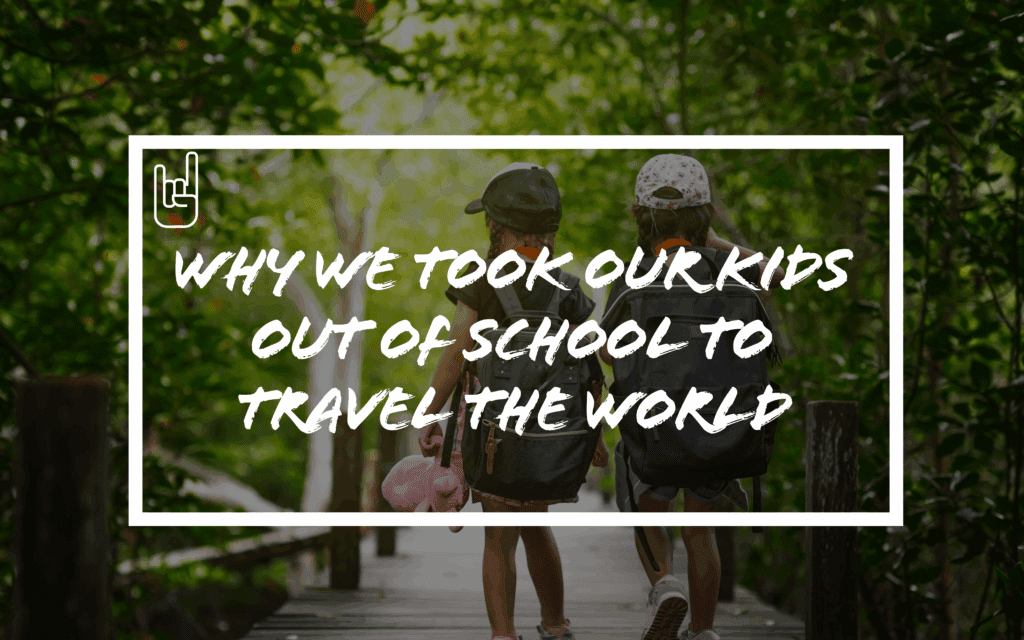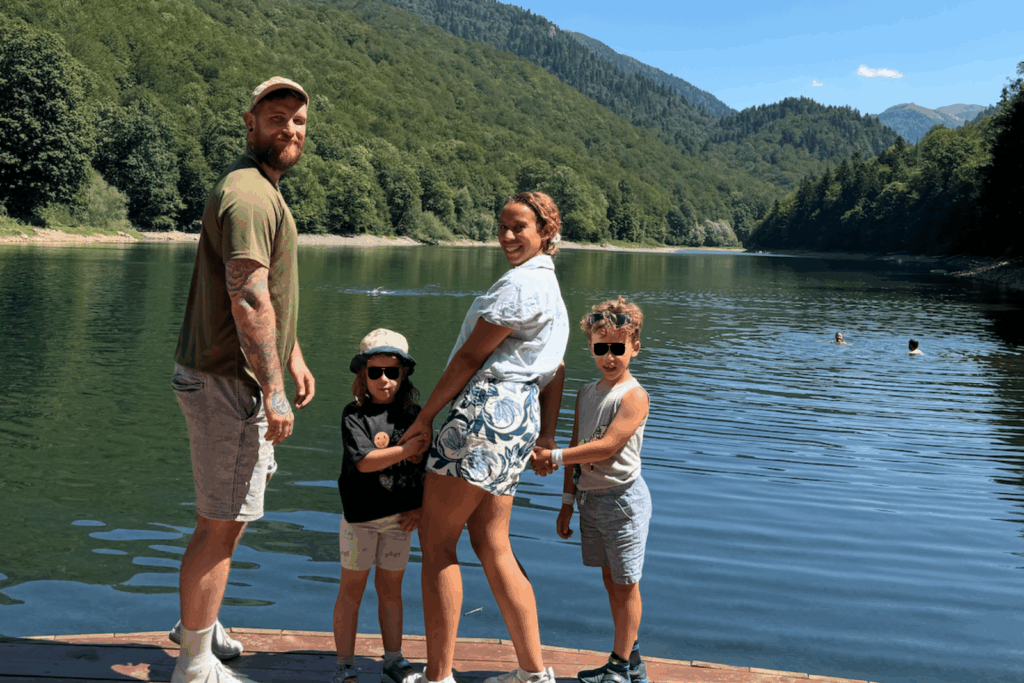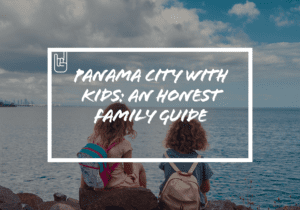Edited September 24th 2025
Why We Took Our Kids Out of School to Travel the World
When we wrote this, our big family adventure was still just an idea. Now, a few months in, we’re living it, two kids, backpacks, and a one-way ticket through South America. We’ve traded school runs for bus rides, homework for Spanish lessons in markets, and routine for a rhythm that changes with each new place.
We didn’t take our kids out of school lightly. But what we’re learning (and what they’re learning) confirms exactly why we made this choice, and it’s probably not what you’d find in a glossy brochure.
“Wait… You’re Doing What?”
When we told people we were taking our kids out of school to travel for a year, the reactions ranged from amazed to mildly horrified.
Back then we were just planning our family travels. Now we’re actually doing it, two kids, backpacks, and a one-way ticket through South America. Some days it feels magical, other days it’s chaos in a bus station, but either way it’s proving exactly why we made this choice.
“Won’t they fall behind?”
“Isn’t that a bit… irresponsible?”
“Must be nice to have that kind of money.”
And honestly? We’ve asked ourselves some of those questions too.
But here’s the truth: this wasn’t a rash, sunshine-fueled decision.
It was a slow build, from restlessness, from curiosity, from a gut feeling that there was more out there for us as a family.
This post is our full, honest breakdown: why we’re doing this, how we prepared, and what we believe our kids will gain beyond any curriculum.
This blog is fuelled by caffeine and chaos, if it helps, support our journey
What You’ll Find in This Post
✅ Why we chose long-term family travel over traditional schooling
✅ How we handled education, socialization, and logistics on the road
✅ The biggest fears we had — and how they actually played out
✅ Honest insights on the pros, cons, and everything in between
✅ Real tips for families considering a similar leap
Table of Contents
Why We Even Considered It
We’re not running away from school.
We’re running toward something different.
This choice wasn’t about academics. It was about…
Time together (before they’re teenagers who roll their eyes at everything we say)
Perspective (showing them how other people live, eat, speak, and think)
Curiosity (following questions that start at breakfast and end with jungle hikes)
Slowing down (because family life started to feel like a sprint with no finish line)
It’s not that school is bad.
It’s just that we wanted to try something different, for one year. On purpose. Together.
How We’re Handling Education While Traveling

This was our first worry too.
But here’s what gave us confidence:
Learning is everywhere. Not just in books, but in buses, bakeries, and broken Spanish conversations at markets.
We’re still guiding their learning. We’re not unschooling completely, we’re worldschooling with structure.
They’ll catch up. Kids are resilient. A gap year now doesn’t mean a gap in life.
Before we left, this was the plan. Now on the road, it’s become more fluid. Journaling sometimes happens in a café over hot chocolate. Maths is often pesos and bus timetables. Science is studying the bugs the kids collect at parks. And Spanish? It’s daily practice, ordering empanadas or asking for directions.
Plus, a few trusted resources and light curriculum supplements for rainy days.
Read our article: Would You Take YormChild Out of School To Travel?
What Our Kids Will Learn Through Worldschooling
We know they’ll learn how to say “where’s the bathroom” in Spanish.
But what we really want them to learn is:
Empathy – That the world is full of people who live and love differently.
Adaptability – That change is okay, even when it’s hard.
Curiosity – That you can ask questions and follow your interests, no matter your age.
Confidence – That they can figure things out, even when it’s uncomfortable.
And most of all, that learning doesn’t only happen in classrooms.
Addressing Common Concerns About Worldschooling
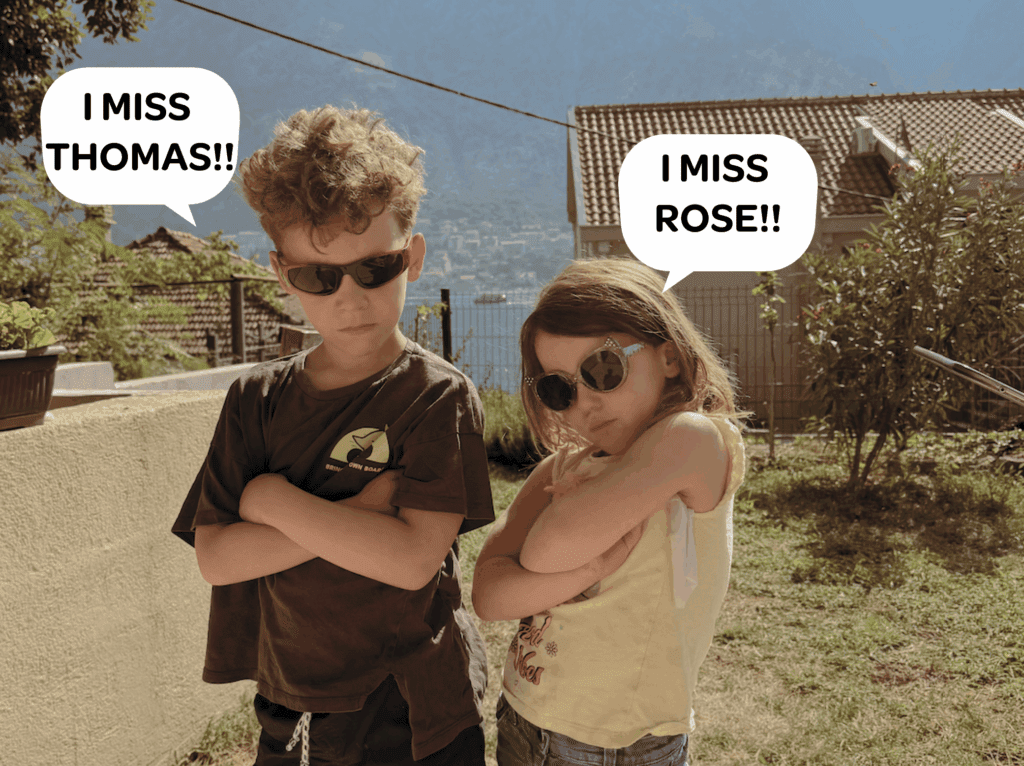
Won’t they miss their friends?
Yes. But we’ll stay connected digitally, and they’ll make new ones along the way. Read our blog on socialisation here
What about routine?
In reality, some days are structured, some are not. After a week in Quito, our rhythm looked like mornings in La Carolina Park, quiet afternoons with books, and early nights because the altitude wiped us out. The shape changes, but the consistency is togetherness.
Will they fall behind?
Maybe. But we’re measuring growth differently, not just in grades, but in grit, awareness, and experiences.
Is this selfish?
It feels the opposite. We’re showing our kids that family comes first, and that we can live intentionally, even if it’s unconventional.
Preparing for a Year of Family Travel and Worldschooling
- Talking about the why. Often. Not just “we’re going on a trip”
but “here’s what we’re excited to learn.” Getting them involved. From choosing destinations to helping pack.
Building travel muscles. Local day trips, weekend getaways, time without devices.
Reading books about travel and new cultures. (Also, kids’ books in Spanish!)
All that prep paid off. The kids now help choose markets to shop in, pack their own day bags, and even pick Spanish words for us to practice as a family. Yes, there are still meltdowns and homesick moments, but those “hard days” tools we talked about? We’re already using them.
Meltdowns, homesickness, sibling wars in new time zones.
We’re not pretending it’ll be perfect. But we’re building tools to get through it…together.
Benefits of Worldschooling: Research and Insights
1. Enhanced Academic Performance
A study published in Tourism Management found that children who took at least one family trip in kindergarten or third grade scored, on average, 1% higher on third-grade reading and math tests
.
2. Development of Social and Emotional Skills
According to the 2023 Family Travel Association survey, 84% of parents reported that family travel helps make their children more adaptable and open to new experiences. Additionally, 62% noted that it gives their children a more positive outlook on life, and 61% said it helps with social skills
.
3. Cultivation of Creativity and Problem-Solving Abilities
Traveling exposes children to diverse environments and challenges, fostering creativity and complex problem-solving skills. A study by Indiana University demonstrated that being in a foreign physical environment significantly increased participants’ capacity for creative problem-solving.
Source: Italia Kids
4. Strengthened Family Bonds
Traveling as a family promotes quality time and shared experiences, which are crucial for family cohesion. Researchers have observed that family travel can strengthen family bonds, improve cohesion, and enhance communication
Additional Insights
1. Encouragement of Lifelong Learning
Worldschooling allows children to learn through real-world experiences, which can instill a love for learning and curiosity about the world. Experiential learning in diverse settings helps children retain information more effectively and fosters a deeper understanding of various subjects .
Source: cntraveler.com
2. Development of Cultural Competence
Exposure to different cultures through travel enhances children’s cultural awareness and empathy. Interacting with diverse populations helps children develop a broader perspective and understanding of the world .
Source: Wonder Year Travel
Bonus: We’ve Got a Secret Weapon — Tania’s a Teacher
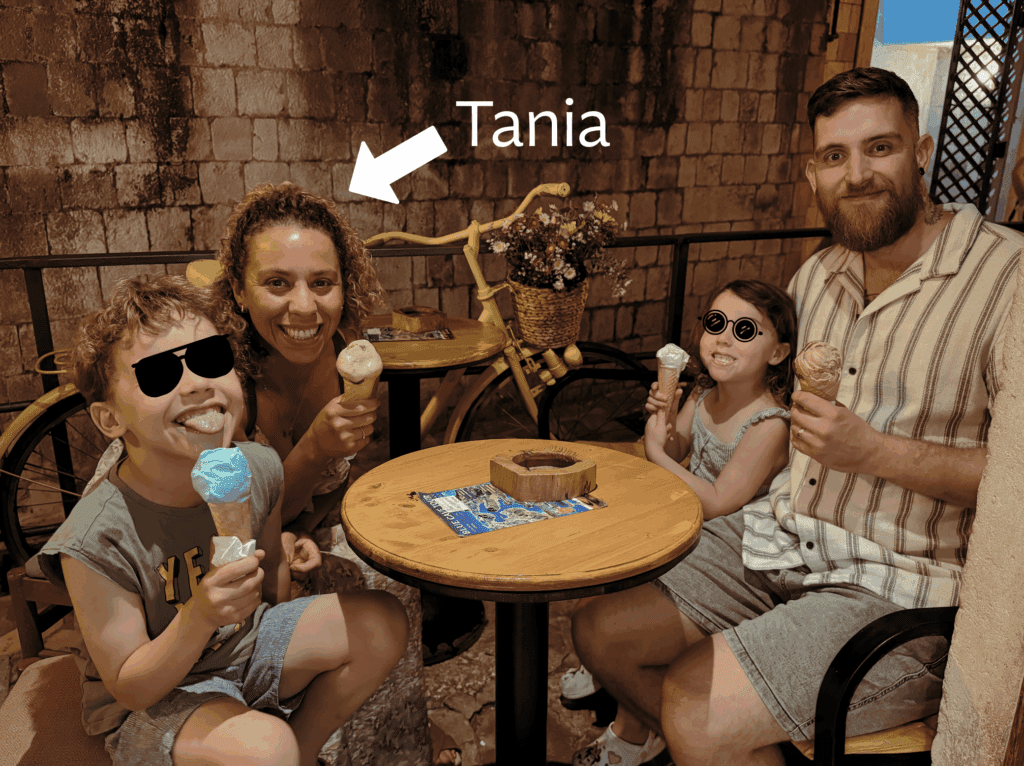
One thing that gives us a bit of extra peace?
Tania is an actual qualified English teacher.
That means:
Literacy? Covered.
Curriculum navigation? Easier.
Understanding how kids learn? Built-in.
Confidence that we’re not just winging it? Solid.
We’re not trying to recreate school at home (or on the road).
But knowing we have someone who understands learning styles, progression, and how to gently guide curiosity? That’s huge.
Plus, she’s way more patient than I am when someone refuses to write a single sentence for their travel journal.
What About Qualifications and Exams?
This is a big one, especially for families with older kids.
Our children are still in primary school, so we’re not navigating GCSEs or secondary school exams yet. But we’ve spoken to families who did something similar, and here’s what we learned:
Short-term travel doesn’t ruin long-term outcomes. Many worldschooling kids return to mainstream education and thrive. Some even jump ahead thanks to their critical thinking and life skills.
Exams aren’t the only path. For older kids, online programs, tutoring, or flexi-schooling can bridge the gap. And some families lean into alternatives like project-based learning or interest-led studies.
For us, this year is about planting the seed of lifelong learning. We’re showing our kids that education can happen in all kinds of ways and that curiosity can drive it.
What if we tried something different — just for a year?
What the Research Says About Worldschooling & Travel Learning
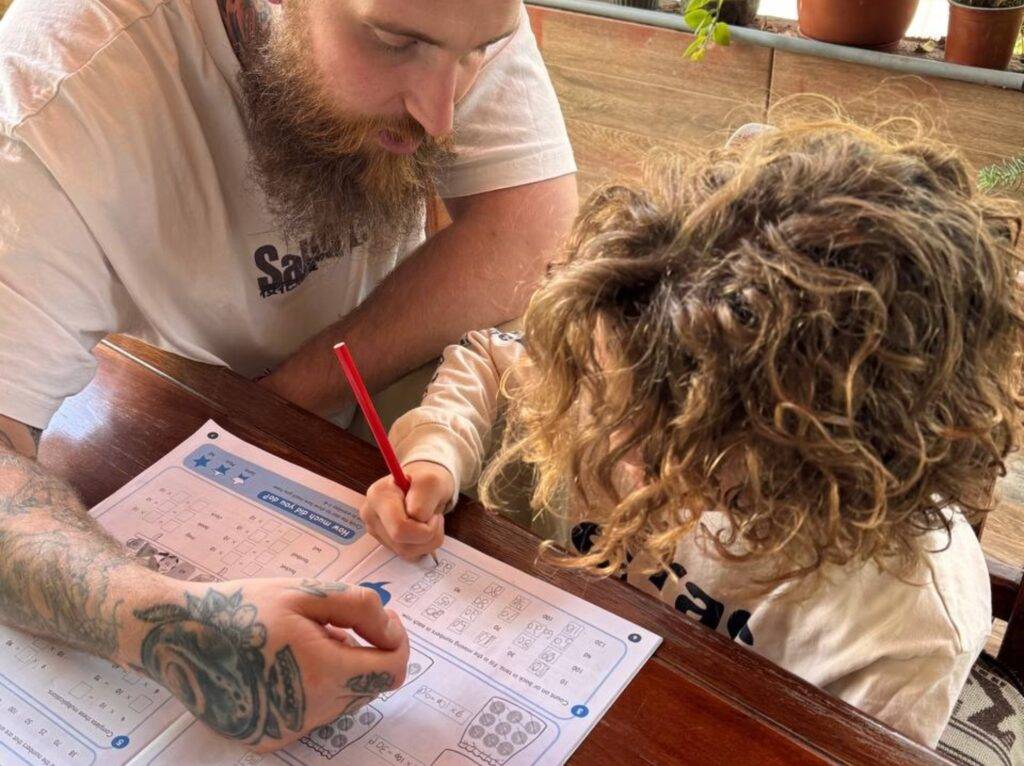
It’s not just a nice idea. There’s actual data supporting travel and alternative education:
Travel builds global competence.
A UNESCO report highlighted that intercultural understanding and flexibility are key 21st-century skills — and travel helps nurture both.Language exposure improves cognition.
Bilingual children (even those in early stages) show improved problem-solving, empathy, and memory skills.Time in nature boosts academic performance.
Studies from the American Institutes for Research show that children who spend time learning outdoors tend to score higher in reading, math, and science.Parent-led education works.
According to the National Home Education Research Institute, homeschooled children consistently perform as well or better than their traditionally schooled peers — socially, emotionally, and academically.
We’re not anti-school. We’re pro-experience.
This decision is rooted in research and a deep belief that the worldschooling can be an incredible classroom.
What Our Kids Think
We asked them.
Here’s what they said:
👧 (5 years old):
“I want to see real turtles. And eat lots of ice cream.”
👦 (7 years old):
“I’m a bit nervous… but I think it’ll be amazing.”
They’re not thinking about learning outcomes or math benchmarks.
They’re thinking about volcanoes, beaches, animals, and making new friends. And that’s exactly how it should start.
We’ll guide the learning. They’ll live the adventure.
@travelventurefour Family Travel influencer be like… #RealFamilyTravel #familytravel #TravelWithKids #dadlife #fyp #tattooeddad #dadsoftiktok #socialmediaisfake ♬ original sound - TravelVentureFour
Our Daily Worldschooling Routine While Traveling
Now that we’re a few months in, here’s what an actual day might look like:
– Morning: Journaling in a café, a short Spanish lesson, and some maths (usually pesos + bus fares).
– Midday: Exploring, climbing volcano lookouts, visiting museums, or just wandering a new town.
– Afternoon: Downtime, sometimes it’s reading, sometimes it’s a full-on sibling wrestle on a hostel bed.
– Evening: Dinner together, talking about what surprised us that day.And of course, plenty of flexibility.
The Truth its not always easy.
In Ecuador we had a 10-hour bus ride where both kids felt sick and we questioned everything. But we also had strangers offer snacks, directions, and kindness and that reminder carried us through.
Life Lessons Our Kids Will Gain from Worldschooling
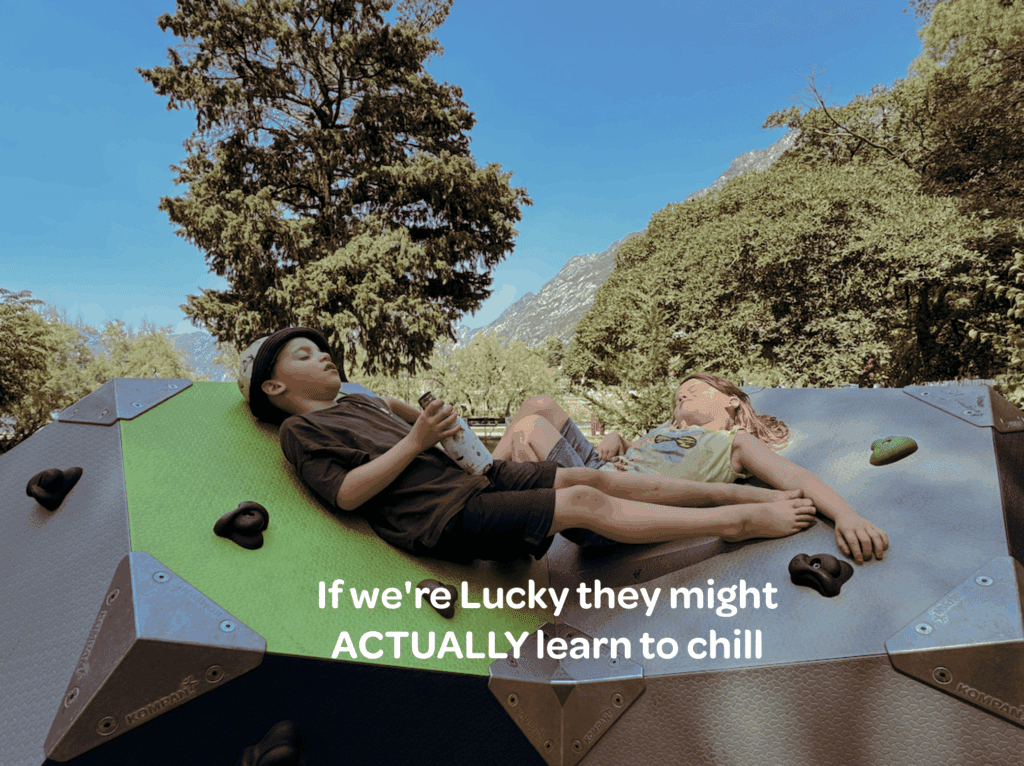
- That being different is okay.
You don’t have to do what everyone else is doing. That challenges are opportunities.
Language barriers, cultural differences, unexpected delays — they’re frustrating… and character-building.That they’re capable.
Whether it’s ordering food, navigating a map, or helping a sibling — they’ll learn independence and teamwork in real time.That the world is full of kindness.
From local vendors to fellow travelers, they’ll see how generosity and curiosity transcend language.That learning is lifelong.
Not just for grades. Not just for school. For growth, connection, and fun.
Also read: Why Travel is good for kids
Final Thoughts: We’re Not Saying It’s for Everyone
We’re not trying to convince anyone.
We’re just a regular(ish) family who said:
“What if we tried something different, just for a year?”
A year where:
We eat together, without rushing
We learn through doing, not just reading
We laugh in hostels and get lost on buses
We really see each other
Looking back, this leap felt terrifying. Living it, we know it was right for us. The kids are learning, we’re connecting more as a family, and yes, it’s messy, but it’s ours.
Thinking about something similar? Start small. Grab our free Family Travel Toolkit the exact resources we rely on for money, accommodation, learning, and staying sane on the road.
Thinking About Something Similar?
We’re sharing the real, messy, often funny behind-the-scenes of this decision from packing chaos to emotional prep and just some absolute random suff too.
👉 Follow @TravelVentureFour if you’re curious what this kind of life actually looks like.
Or check out:
Worldschooling FAQs: Common Questions Answered
1. How much does taking them out of school impact them?
This is probably the top concern we’ve heard. Our honest take? It depends on what you define as “impact.”
Yes, they’ll miss formal lessons but what they’re gaining in adaptability, real-world awareness, and cultural learning is huge. We’re also committed to making sure their transition back is thoughtful, not jarring.
2. Would you take your child out of school to travel the world?
Yes. And we are. We know it’s not the norm, but we believe in learning through lived experience. This trip is about growth, not escape and we’re doing it with eyes wide open.
3. Are there any benefits or risks to giving children time off school?
Both. The risks are mainly logistical—reintegration later, missed friendships, etc. But the benefits? Time together, global perspective, learning how to navigate new places, people, and even languages. For us, that outweighs the risks.
4. How do you feel when people take their kids out of school to travel?
Inspired. It takes courage to step outside the system, and not everyone understands it. But we also think travel can complement education, not replace it. You just have to be intentional.
5. What are the pros and cons of taking kids out of school for long-term travel?
Pros: Time as a family, cultural education, real-life problem-solving, learning independence
Cons: Less structure, missing friends, fear of falling behind in traditional subjects
We’re trying to balance both by building in some structure but with freedom baked in.
6. If you have a good reason, is it OK to take your child out of school for travel?
We think so. Every family’s reason will be different. For us, the reason is connection, growth, and showing our kids a world beyond screens and routines.

